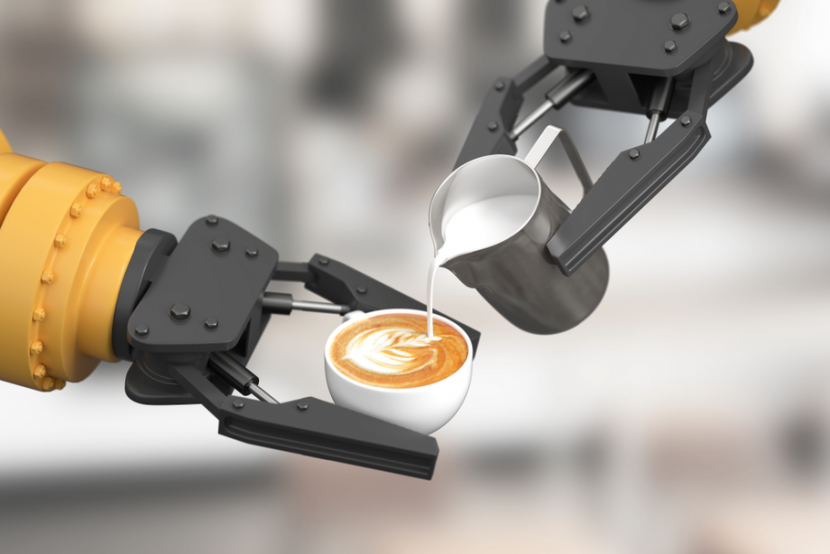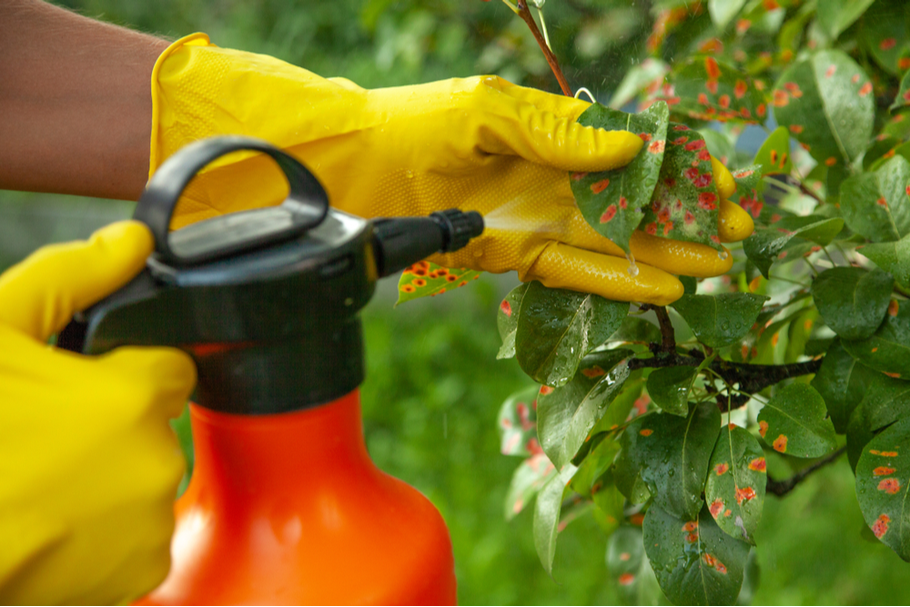Automation and Technology Trends Promise to Transform Food Safety
By Kaylyn Brunskole
High-tech equipment like self-cleaning beverage dispensers, robotic burger flippers and 3D printers for cakes may seem like glimpses into the future, but you will likely see these incredible innovations in commercial kitchens sooner than you think.
Automation and technological enhancements are currently at the crossroads of food safety and innovation, posed to provide significant benefits to restaurants, suppliers and manufacturers. This rising trend can be attributed to high labor costs and labor shortages, as well as the continued need for product quality and consistency. This can be enhanced through the automation of repetitive tasks. As a result, equipment manufacturers, corporate innovation labs and venture capitalists are investing heavily in this new sector.
With new inventions and features introduced nearly every day, it’s critical that innovative equipment is evaluated and tested against existing standards to ensure food safety is properly maintained.
Automated equipment includes products such as robots that can be integrated into food assembly to create completely autonomous kitchens or assembly lines, reducing time and touch points. Examples include robotic burger flippers, “baristas” or drink makers and 3D printers used to apply icing or toppings to cakes. Existing equipment can also be automated to monitor product temperatures, automatically scan and discard product and more.
Equipment can also integrate new technologies. Some examples include refrigerated and heated “lockers” that store food for online ordering with in-person pickup, UV cup and utensil sanitization stations, as well as touchless features on beverage and condiment dispensers. Wearable equipment such as smart-glasses can be used for employee training, providing remote virtual learning without requiring an in-person instructor.
These advances in modern technology can provide many benefits, including cutting down on labor costs and production time; ensuring product consistency and safety by eliminating human error; and providing a “wow” factor to employees and customers alike.
With new inventions and features introduced nearly every day, it’s critical that innovative equipment is evaluated and tested against existing standards to ensure food safety is properly maintained. While the equipment may be fully automated, the basic principles of hygienic design (such as radius, in-place cleaning, fasters, etc.) continue to pose important food safety risks that manufacturers should be aware of. In entering the world of food safety, startups are sometimes unfamiliar with such hygienic standards, as well as the local codes and government requirements for food equipment.
Third party agencies, such as NSF International, play a key role in evaluating potential risks prior to the introduction of equipment to the market. Attaining product certification from a certification body provides external validation that the product is cleanable, hygienically designed and safe to use in the certified applications.
Equipment is sometimes built for just one specific business or purpose, which often requires collaboration between local officials, the manufacturer and a certification body to ensure the safest possible product is entering the marketplace.
As the foodservice equipment landscape continues to evolve, food safety must remain top of mind for manufacturers and users alike. Proper product development and review can ensure that the use of innovative equipment keeps both workers and consumers healthy and safe.
About the Author:
Kaylyn Brunskole, MPH, CHES is a strategic account manager in food safety product certification at NSF International. NSF International is an independent, global organization that facilitates the development of standards, and tests and certifies products for the food, water, health sciences and consumer goods industries to minimize adverse health effects and protect the environment. Founded in 1944, NSF International is committed to protecting human health and safety worldwide.

-
 FeaturedRisk management
The Cost of a Breach: What a Cyberattack Could Mean for Food Safety Recalls
FeaturedRisk management
The Cost of a Breach: What a Cyberattack Could Mean for Food Safety Recalls
-
 FeaturedRisk management
Securing the Food Chain: How ISO/IEC 27001 Strengthens Cybersecurity
FeaturedRisk management
Securing the Food Chain: How ISO/IEC 27001 Strengthens Cybersecurity
-
 FeaturedRisk management
Revolutionizing Food Safety Training: Breaking Out of the “Check-the-Box” Mentality
FeaturedRisk management
Revolutionizing Food Safety Training: Breaking Out of the “Check-the-Box” Mentality
-
 GFSI Standards
GFSI 2025: Building Trust, Tech-Forward Solutions, and Global Unity in Food Safety
GFSI Standards
GFSI 2025: Building Trust, Tech-Forward Solutions, and Global Unity in Food Safety
-
 FeaturedFood Safety
Integrated Pest Management: Strategies to Protect Your Brand’s Reputation
FeaturedFood Safety
Integrated Pest Management: Strategies to Protect Your Brand’s Reputation
-
 FeaturedFood Safety Culture & Training
No Open Door Policy: Challenges That Impact Pest Control in Food Processing Plants
FeaturedFood Safety Culture & Training
No Open Door Policy: Challenges That Impact Pest Control in Food Processing Plants




